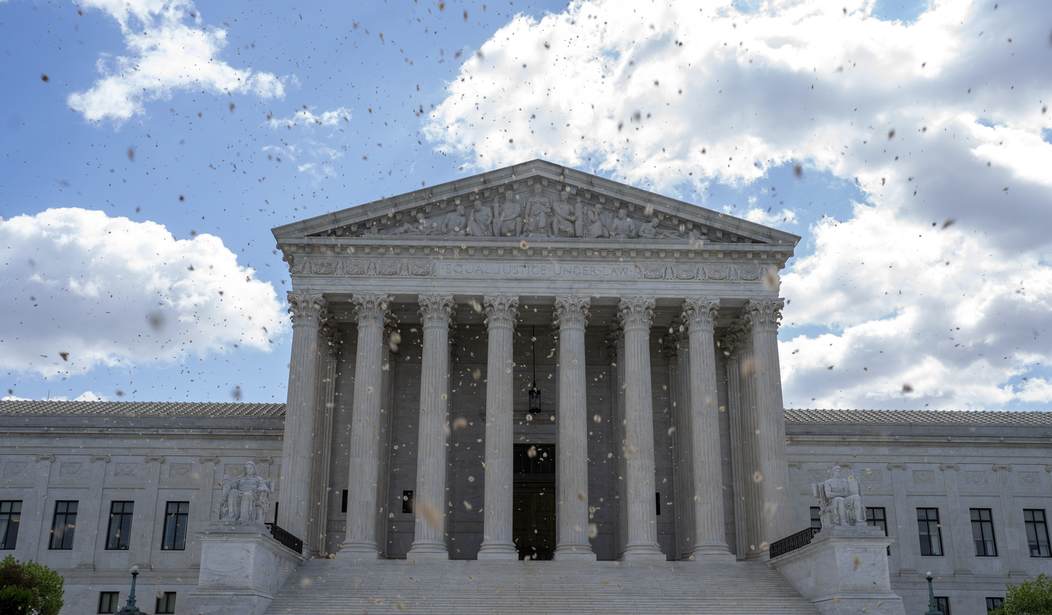“It felt sometimes like the PTAB was making it up as they went along,” said Gene Quinn, founder and CEO of IPWatchdog, in an interview with former U.S. Patent and Trademark Office Director Andrei Iancu regarding the Patent Trial and Appeal Board.
Mr. Quinn politely understated the distressed situation to which the U.S. patent system has fallen over the past couple of decades.
Congress created the Patent Trial and Appeal Board (PTAB), an administrative quasijudicial panel of questionable constitutionality, in the destructive 2011 America Invents Act. Then an ex-Google PTO director set up PTAB in such a tilted manner that it extirpates 84 percent of patent claims brought before it.
PTAB ignores the statutory presumption of patent validity. Whereas federal courts apply a “clear and convincing” standard to prove invalidity, PTAB uses a lower “preponderance” standard.
PTAB is so unbridled a former chief judge of the Federal Circuit dubbed it patent “death squads.” It’s more of a tool for patent infringers’ lawfare than for legitimate reconsideration of an issued patent’s validity.
Also, courts have made a mess of patent eligibility. One judge calls it “validity goulash.” The patentability law is intentionally broad because it’s only the threshold question. But judges have created exceptions to what’s patentable, and PTAB and courts play along.
Several rulings underlie the goulash: Bilski v. Kappos, Mayo Collaborative Services v. Prometheus Laboratories, Association for Molecular Pathology v. Myriad Genetics and Alice Corp. v. CLS Bank. These and succeeding convoluted court decisions constrain patent eligibility for inventions now deemed an “abstract idea” or a “law of nature.”
Recommended
These judicially created exceptions render unpatentable many previously U.S. patentable inventions. Medical diagnostic tests and computer-implemented software inventions now lose or are denied U.S. patents. But such inventions remain patent-eligible around the world.
Another major problem follows the U.S. Supreme Court’s eBay v. MercExchange decision. Before 2006, courts routinely found for the patentee after finding a patent valid and infringed, and weighing the equitable interests. This resulted in injunctions against patents’ infringers. But eBay has led to what amounts to a categorical rule of denying injunctions.
Mr. Iancu took the helm as PTO director in 2017, a time by which PTO and PTAB had lost the confidence of many inventors, investors and entrepreneurs. Widespread doubt existed about the certainty, reliability and predictability of U.S. patents.
Under Mr. Iancu’s leadership, things began to improve. He stopped some of the bleeding and began making repairs. He couldn’t restore all we’ve lost in America’s patent system, but he clearly moved the dial.
Among his accomplishments, Mr. Iancu issued guidance bringing a degree of rationality to patent eligibility matters in patent examinations and at PTAB. He revised the guidance further in 2019 with practical analytical approaches. He initiated new PTO standard operating procedures designed to impose more uniformity in the way PTAB and patent examinations run.
PTO, the Justice Department and the National Institute of Standards and Technology issued a policy statement. It affirms that FRAND commitments in standards organizations don’t preclude standard-essential patent owners’ right to injunctive relief and other remedies under their basic patent rights.
Mr. Iancu changed the legal standard PTAB uses to construe a patent’s claims in proceedings on patent validity. The Phillips standard, the same one federal courts and the U.S. International Trade Commission employ in cases weighing patent validity, is required.
Also, PTAB now allows amending patent claims in its proceedings, and PTAB can only institute proceedings on all challenged patent claims or else not at all. This latter rule removes a biased presumption favoring patent challengers. And in a hyperpartisan Washington, Mr. Iancu enjoyed bipartisan confidence and support.
The “Iancu effect” includes reduced uncertainty over some patent rights and a bit more predictability where PTO is concerned. But this could very well be reversed depending on the Biden administration’s patent policies and personnel choices.
We should give permanency to measures that strengthen U.S. patent rights. Certainty and reliability of patent policies critically affecting American innovation shouldn’t be subject to radical shifts from one administration to the next. China stands to gain from such yo-yoing.
Plan A must be lawmaking. Enact meaningful patent reforms such as the STRONGER Patents Act and the Restoring America’s Leadership in Innovation Act. Plan A shouldn’t remain hoping that each new administration appoints a good PTO chief. That’s untenable because of its high uncertainty.
James Edwards, Ph.D., is executive director of Conservatives for Property Rights (@4PropertyRights) and patent policy advisor to Eagle Forum Education and Legal Defense Fund. The views expressed are his own.
























Join the conversation as a VIP Member